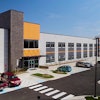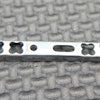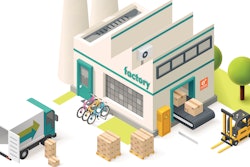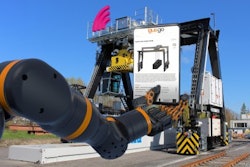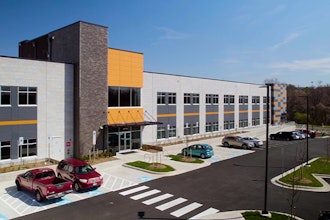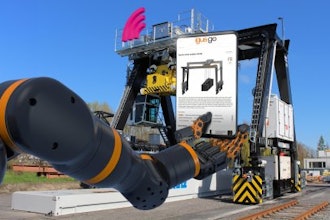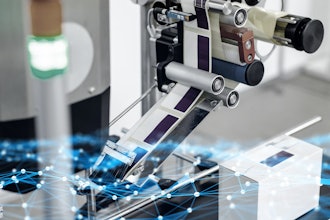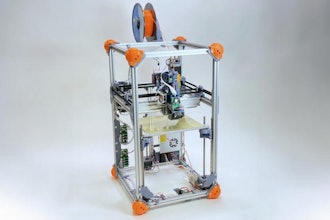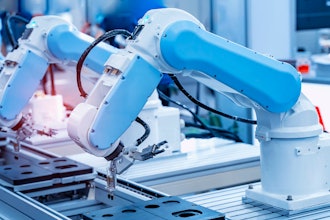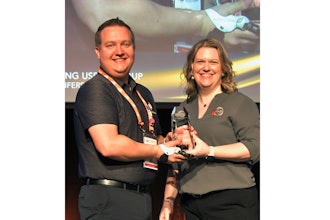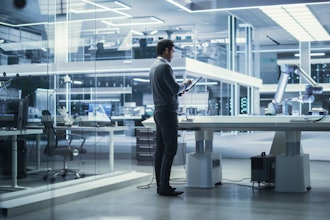In my recent editorial, ‘Reading, Writing, and Arithmetic… Where’s the Engineering?’, the opening line contained an easily missed error for anybody who isn’t an editor for a living. Hordes of kids are not the same as hoards of kids, in fact the latter makes absolutely no sense grammatically. Alas, the newsletter was released saying, “After spending four days at the FIRST Championship, surrounded by hoards of kids that have a better understanding…” You see, when typing up the editorial, I mistyped hordes as hords, and the writer’s best friend, spell-check, went to work correcting my error. Unfortunately, the system incorrectly corrected my typo, and we end up with a grammatically incorrect phrase about collecting children rather than a phrase referring to the monstrous gathering of teenagers in St. Louis. This brings to mind the issue of our overreliance on technology.
I trust that spell-check knows what’s best. This may be negligent at times, but who can say that they have never just trusted their computer when clicking replace. It can be said, in this circumstance and many others, that no matter how complex technology becomes, it will always be susceptible to human error. We often become too complacent and accept that our technology is right, all the time. Even beyond that point, though, is the trumping of our understanding of basic skills.
Speaking with a friend of mine about my recent trip to the FIRST Robotics Competition spurred a conversation about where our country is headed as a whole when it comes to common sense and education. As a contractor by trade, my friend concluded, “If Google breaks down and all the computers freak out, I still know how to catch and cook my food without looking anything up,” and speaking on the full apocalyptic perspective, “I can build a shelter and fend for myself without having to check Web MD to see what is best for my diet.”
Though his perspective is to an absolute extreme, it brings to light how reliant we sometimes are on our technology. What would happen if every computer shut down and we were forced to communicate via landline, or worse, face-to-face? Beyond my sarcasm, it is a frightening situation to think about. Without computers, most cars would fail to operate, most phone lines would be dead, the power grid would be non-existent, and the feasible world would, in essence, cease to move forward.
So, let’s take a step back from the impending apocalypse, and reacquaint our situation with spell-check. I grew up needing to look up things in a dictionary, and there is a certain skill set that goes along with doing things the old-fashioned way (for cliché’s sake, let’s call it analog). What about finding an old contact in an alphabetic catalogue the analog way? Can you perform long division the analog way, with pencil and paper? Can your kids? There was a reason we were all forced to learn long division before being given a calculator. This drives back to the importance of programs like FIRST. Forcing kids to understand how something works rather than just assuming it will always work, is vitally important to the success of future generations.
Also, easy access to fast facts can be incredibly useful and efficient, but at what cost? Google and Wikipedia are synonymous with fact (according to my high school cousin and nine-year-old niece), but these venues aren’t fact checked nor are they always correct. I am what many would call a Bibliophile. I enjoy my collection of books, and I’m quite proud of my small, growing library. But, beyond the pride of displaying my reading achievements, hard copies give access to things that Google, a Kindle, or even an iPad can only deliver when they are turned on. Personally, I give the printed word more clout than Wikipedia or any of the previously mentioned technologies, if only just because it is harder to amend or change the printed word.
Now, I’m pulling a lot of insight out of a minor typo that just happened to get through the filters, but the fact that technology is weaved into almost every facet of our lives could have potential repercussions. I have to constantly remind myself of what it would be like without all this technology. Not because I have to prepare for the apocalypse or the loss of Google, but because we need to keep technology and ourselves in check. There is a finite balance between the analog method and the digital existence that must remain evenhanded. Technology puts us at risk to dumb down our thinking capacity, but on the same token, not embracing high-tech progress will surely stunt intellectual growth. Technology will push us into the future, but we must walk that line between analog and digital to make it advantageous.
What's your take? Email [email protected].
